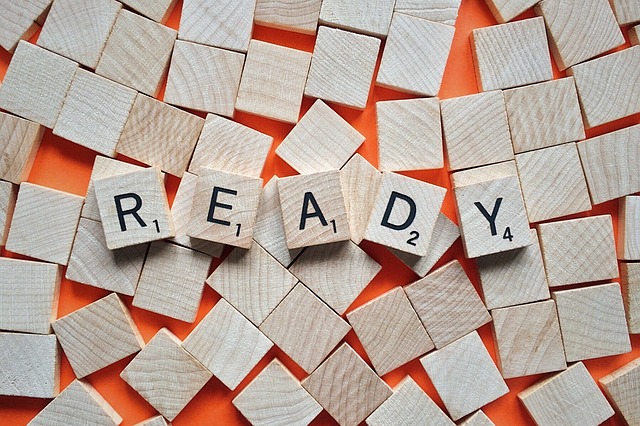What if nothing happens?

No matter what the preparedness focus, be it just self defense or a full-blown disaster, in the back of everyone’s mind is a little voice that wonders if they’re not being just a little silly.
“After all”, the little voice says, “you’re spending a lot of your time, energy, and money on something you don’t know for sure will ever come to pass. What if it never happens? Aren’t you going to look like a sucker!”
Opposite Day
Things just seem to happen opposite to what we do. It is almost axiomatic that washing the car is certain to cause rain, for instance, while packing warm-weather clothes for a trip is almost a guarantee that it will snow. And no matter what we’ve determined reality to be, somehow it never seems that way to others.
It’s like when your car is acting up, but when you make an appointment to get it fixed the thing runs perfectly for the technician.
We’ve all experienced some variation of those confounding situations, so it’s really no surprise that our subconscious is on the alert when we start planning far ahead — or maybe for the unknown tomorrow.
The fears of preparedness
Our minds are reflecting, I think, two fears. The first is the fear of looking like a fool in front of our friends and loved ones. “If you go to all that trouble and nothing happens, they’re going to laugh at you!” No one wants to be the butt of someone else’s joke, after all.
The second is the fear of waste, of throwing away all of our money (not to mention the time, energy, and storage space). We all remember those bad investments, those episodes where we spent in anticipation only to be let down by the result.
We are, after all, looking into a future that is, at best, murky. We can make informed decisions based on data and rational analysis, but in the end it’s really a crapshoot. In fact, the ideal outcome is that nothing happens, but we prepare just in case things don’t work out that way.
What about those fears?
If your subconscious is playing the humiliation card, there are a couple of ways to combat it. The easiest is to simply not tell people what you’re doing! No one needs to know that you’re carrying a defensive firearm, and no one needs to know that you’ve laid in food and water for a protracted bad incident. It’s none of their business. What they don’t know about, they can’t ridicule.
In fact, you’re better off not broadcasting what your preparations are. Not only do criminals not need to know what you’ve got and where you keep it, those people who are casual acquaintances don’t need to know, either. If someone ever tells you “if the big one hits, I’m coming to your house!”, that’s a sign you’ve probably shared too much information.
The other method is to allow yourself a bit of self-congratulatory smugness. I’m not suggesting that you turn into an arrogant jerk, mind you, only that when your mind starts in with the humiliation gambit, allow yourself to feel a bit above those imaginary people who would put you down. Allow yourself the luxury of realizing that you’re in a much better position than they are, survival-wise. You’ll come out of any event — criminal or natural — far less scathed than others, and that’s something to feel a little proud of.
What about the fear of waste, of misplaced spending? Left unchecked, this fear can debilitate you and cause you to do nothing. Seen in proper context, however, it can help you to focus on those events which are plausible and on those preparations which are reasonable. It can keep you from over-preparing in one area and under-preparing in others.
It also keeps you from separating your life from your survival. It’s my firm belief that many specialized preparations (freeze dried foods are a very good example) are a waste. It’s better to simply increase your stock of the foods you normally eat and learn to rotate constantly, so that when disaster strikes your diet doesn’t change radically. You also won’t end up throwing out cases of MREs that have become too gross to eat!
The same is true for defensive preparations. I caution people not to let fear of crime, and the knee-jerk reactions that it engenders, to control their lives. Carrying a defensive firearm is one thing; quitting your job to get one whose dress code is sufficiently relaxed that you can carry the gun, the backup gun, the deep-cover gun, three fighting knives, a miniature ER of medical supplies, and the illumination capacity of a small sun is another. A slight dose of the waste fear helps prevent that level of craziness.
But…
What if nothing happens? If you’ve done things rationally and reasonably, the result will be a life lived just a little easier, a little more confidently, and a little more relaxed. Being prepared for the plausible events in your life, whatever those may be, is a stress reliever. If nothing happens, you’re still better off. You’re more resilient, better able to deal with life’s normal ups and downs, because you know you can handle the big stuff.
And you’ll have paid a lot less than your neighbor did for her Xanax prescription.
— Grant
P.S.: Living a relaxed, confident and content life is really the message of my book, Prepping for Life: The balanced approach to personal security and family safety. It’s not about the zombie apocalypse, but about how to be prepared without going crazy (or leading people to think you are.) Available in Kindle, iBooks, and paperback formats.
Listen to this blog – and subscribe to it on iTunes by clicking this link!
- Posted by Grant Cunningham
- On July 16, 2018

